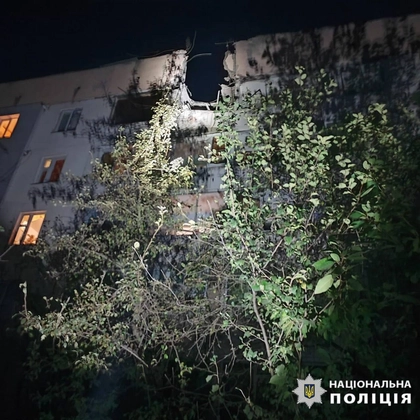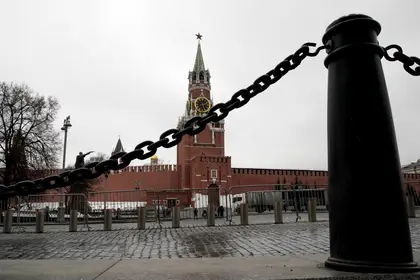Tensions soared on Tuesday, August 2, when it was announced that U.S. House Speaker Nancy Pelosi’s plane had landed in Taiwan as part of her tour of Asia.
Amidst the escalating diplomatic crisis between China and the United States of America, Pelosi offered her unwavering commitment to Taiwan’s democratic values, saying in a statement that her controversial visit “in no way contradicts longstanding United States policy” and that America “continues to oppose unilateral efforts to change the status quo.”
“Our congressional delegation’s visit to Taiwan honors America’s unwavering commitment to supporting Taiwan’s vibrant democracy,” she added.
However, Chinese President Xi Jinping condemned Pelosi’s presence, accusing America of attempting to display support for the movement for Taiwan to be officially declared an independent sovereign nation – something China strongly opposes.
A Week of rising tension
July 28
In a telephone call to President Joe Biden on Thursday, July 28, Jinping warned against the visit, saying that “those who play with fire will perish by it.”
July 29
With Pelosi’s visit undeterred, China announced the commencement of military exercises from August 2 to August 6 in the Taiwan Strait, using artillery and rocket launcher systems. At the same time, the Chinese Ministry of Defense stressed that “[we] will never sit back and will take decisive action to prevent the interference of any external forces.” In response, Taiwan launched large-scale defense exercises, including air raid drills in cities across the country.

Kyiv Hit by Massive Drone Attack as Russian Strikes Target Multiple Ukrainian Cities
July 30
While Pelosi, whose plane’s tracking was disabled, begin her journey into Asia, China, which is just 180km from Taiwan, began moving its equipment closer to the coast. In response, Taiwan allegedly raised fighter jets.
July 31
Pelosi published a schedule of her diplomatic tour of Asia. Among the list were Malaysia, South Korea, Singapore, and Japan. White House spokesman John Kirby stressed that Pelosi did not confirm her intention to visit Taiwan, but added that “if she wants to, then she has the right to do so.” In the evening, Pelosi arrived in Singapore.
August 1
China celebrated the 95th anniversary of the creation of the Chinese People’s Liberation Army. This followed a post on social media by the army the day before that stated: “we are preparing for war”.
On the same day, four Chinese fighter jets entered Taiwanese airspace. In response, the Americans pulled their aircraft carriers to the island.
Taiwanese state media journalist Tingting Liu said that Pelosi would arrive in Taipei on the evening of August 2. CNN, citing high-ranking Taiwanese and U.S. officials, said that Pelosi planned to stay in Taiwan overnight.
The White House warned that China could respond to Pelosi’s visit to Taiwan by instigating military provocations. According to John Kirby, this might include launching rockets near Taiwan or large-scale air or sea action.
August 2
Taiwan increased its level of combat readiness. All flights departing from the coastal region of Chinese Fujian were canceled. Also, the supply of oil and petroleum products to civilians in the Fujian province were discontinued.
The mayor of Xiamen urged civilians to donate blood. From the southeastern Chinese city of Fujian, columns of military equipment moved towards Taiwan, while Chinese fighter jets were witnessed in the Fujian and Zhejiang provinces.
In the same area, Chinese ballistic DF-16 missiles were spotted, with a range of up to 1,000 kilometers and equipped with nuclear or high-explosive warheads.
Meanwhile, the Taiwan Air Force transferred an additional eight Mirage-2000 fighter jets to its air base in the southeastern county of Taitung.
According to Reuters, bomb shelters are currently being prepared on the island. U.S. surveillance aircraft are also in active operation. A Boeing B-52 “Stratofortress” was spotted in the morning – a strategic intercontinental bomber capable of carrying an array of weaponry, including nuclear.
According to Taiwanese media, the authorities of Taiwan tried to withdraw Pelosi’s invitation to the island on August 2 because of the inherent risks, but she insisted on pressing ahead with what she labelled an “historic” trip.
What might happen next?
Views regarding the potential for a Chinese invasion of Taiwan vary. On July 22, the Ministry of Defense of Japan determined there to be an extremely high risk of China attacking Taiwan. This comes against a backdrop of Beijing repeatedly talking about the desire to “return Taiwan [to China] in any way.”
CIA Director Will Burns is also convinced that China will try to attack Taiwan. However, the failure of Russia’s invasion of Ukraine may discourage China from doing so.
According to Yurii Poita, the head of the section of the Asia-Pacific NGRN region, China and Taiwan could reach some sort of agreement, leading to a limited escalation but no military conflict – or tensions could indeed escalate into war.
Poita, however, also stressed that due to most of Russia’s land forces being involved in the invasion of Ukraine, its Pacific Navy could be placed on alert to assist the Chinese army. “In this case, Russia may ask China for something in return. This could be the provision of intelligence with the help of Chinese satellites, technological innovations, or weapons,” he said.
It is not known at this time whether armies in the region are on alert, and no martial law has been introduced. However, all Taiwan-controlled “outer” islands have moved into full combat readiness for the first time since 1996.
Should Xi Jinping remain in office and actively cooperate with Moscow, it could create a “two-axis resistance” to the West, with the worst-case scenario being the potential triggering of World War III.
Is Taiwan independent?
After World War II, China began ruling Taiwan with support from its allies, the U.S and U.K. A subsequent civil war in China led to then-leader Chiang Kai-shek’s forces being defeated by Mao Zedong’s Communist army. Chiang and what was left of the government and its supporters fled to Taiwan in 1949. Following this, Taiwan began to develop as a democratic state.
However, in 1971, questions were raised as to whether the Taipei government was truly representative, and the United Nations (UN) transferred recognition to China.
Taiwan’s legal status remains unclear, but official diplomatic relations are maintained to this day with 13 UN member states.
Taiwan has a democratic government and is considered one of the four “Asian tigers” – the most successful economies in the region.
Beijing has persistently sought to deny the attempts of any state to establish relations with Taiwan or visit the island.
In 2005, a law was passed in China on the use of military force against Taiwan if its government were to declare independence de jure. The U.S. maintains a policy of “half-hearted” neutrality towards the island: recognizing the legitimacy of China as a single state, but only “taking into account” Beijing’s position on Taiwan, thus continuing to develop ties with the island.
You can also highlight the text and press Ctrl + Enter






